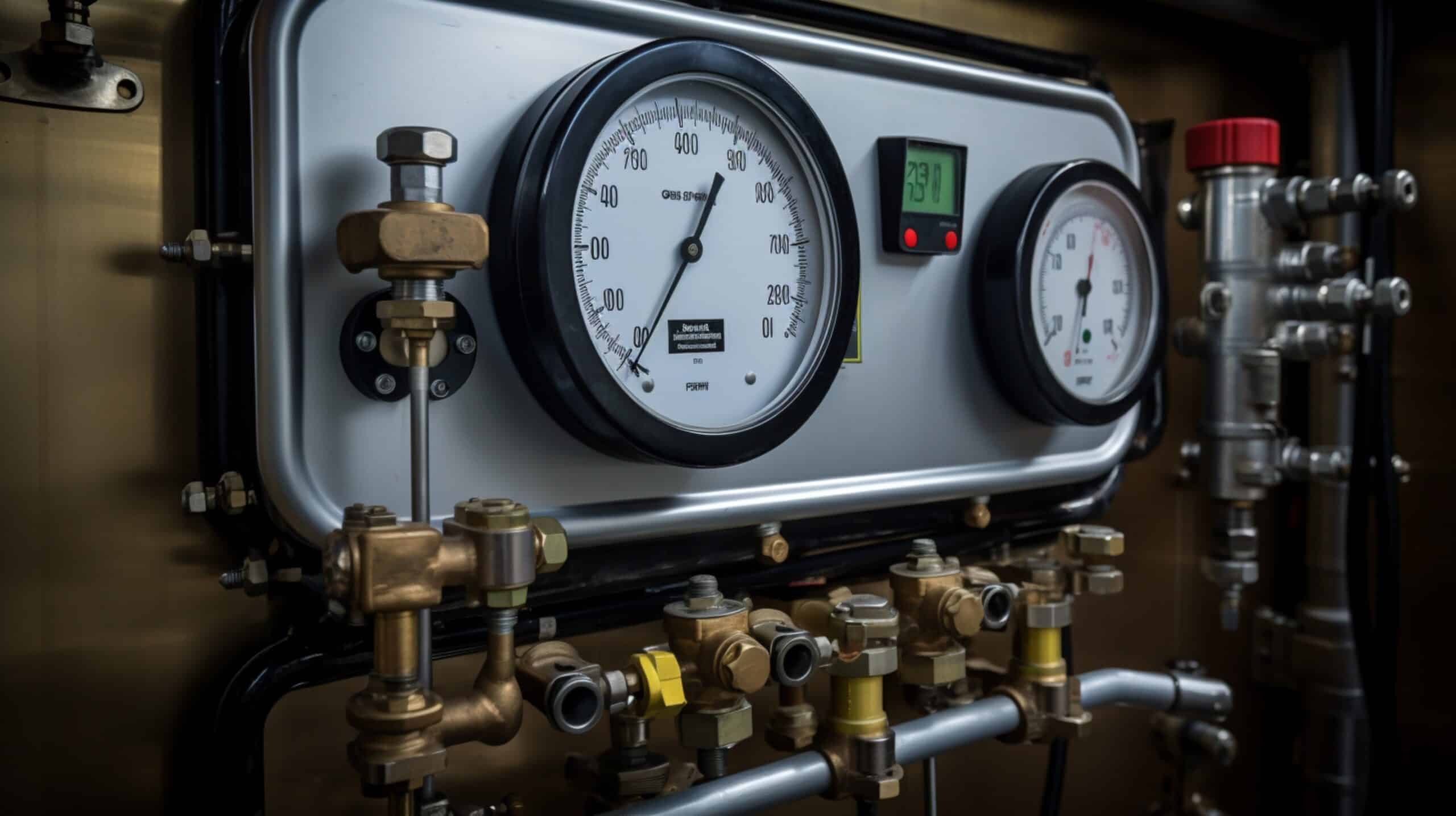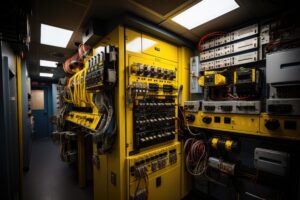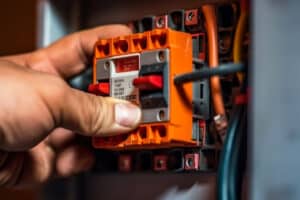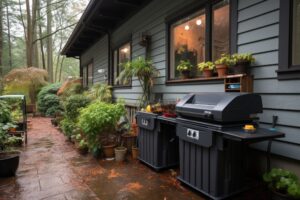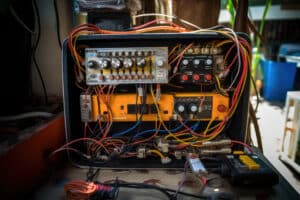What’s the Lifespan of Home Generators?
Key Takeaways
- The size of the generator plays a significant role in its lifespan. Generally, larger generators tend to last longer than smaller ones.
- The type of fuel used in the generator can also impact its lifespan. Natural gas generators usually have slightly longer lifespans compared to diesel or gasoline models.
- The location where the generator is installed or used can affect its lifespan. Outdoor standby units tend to last longer than generators used frequently for portable applications.
Home generators are a valuable investment for homeowners, providing a reliable source of backup power during outages. However, it’s important to understand the lifespan of these generators to ensure they are well-maintained and replaced when necessary. In this article, we will explore the factors that affect the lifespan of home generators and provide tips on how to extend their longevity.
Factors Affecting Lifespan
The lifespan of home generators can vary depending on several factors. Let’s take a closer look at these factors:
1. Generator Size
The size of the generator plays a significant role in its lifespan. Generally, larger generators tend to last longer than smaller ones. This is because larger units operate at lower stress levels, leading to reduced wear and tear on the engine and other components.
2. Fuel Type
The type of fuel used in the generator can also impact its lifespan. Natural gas generators usually have slightly longer lifespans compared to diesel or gasoline models. Natural gas burns cleaner and produces less residue, resulting in less wear on the generator’s internal parts.
3. Location
The location where the generator is installed or used can affect its lifespan. Outdoor standby units tend to last longer than generators used frequently for portable applications. Outdoor units are typically better protected from environmental elements, such as temperature extremes, dirt or debris, and salt corrosion.
4. Frequency of Use
The frequency of use also plays a role in the lifespan of home generators. Home standby generators that run for brief outages and regular tests experience less wear and tear, resulting in greater longevity. On the other hand, generators that are used extensively or for prolonged periods may have a shorter lifespan.
5. Maintenance
Regular maintenance is crucial for maximizing the lifespan of home generators. Following manufacturer directions for oil, filter, and battery changes, as well as other upkeep tasks, can significantly extend the generator’s life. Routine maintenance helps keep the generator running efficiently and minimizes the risk of breakdowns.
6. Environment
The environment in which the generator operates can impact its lifespan. Temperature extremes, such as extreme heat or cold, can put additional stress on the engine and other components, potentially leading to premature wear. Additionally, exposure to dirt or debris and salt corrosion can also reduce the lifespan of the generator. In contrast, mild inland climates tend to promote longevity.
Extending the Lifespan of Home Generators
While the lifespan of home generators can vary, there are several steps you can take to extend their longevity. Here are some tips:
- Regular Maintenance: Perform regular check-ups every few months, change the oil if necessary, check connections, and clean air filters. This helps ensure the generator is in optimal condition.
- Proper Storage: Store the generator in a dry place, away from combustible materials. Before storage, empty the fuel tank and carburetor to prevent fuel-related issues.
- Check Fuel Quality: Regularly inspect the fuel for signs of contamination, such as dark or cloudy appearance, sediment, or particles. Additionally, use fuel stabilizers to protect against oxidation and corrosion.
- Monitor Oil Levels: Check the oil level before each use and add more oil if necessary. It’s important to use an API-certified and SAE-rated motor oil recommended by the manufacturer.
- Don’t Overload It: Understand the wattage requirements of your appliances and ensure they are compatible with your generator’s wattage capacity. Overloading the generator can lead to premature wear and damage.
- Adjust Air Filter: Regularly replace the air filter to ensure proper airflow and prevent engine strain. This simple maintenance task can significantly extend the life of the generator.
- Use Only Genuine Parts: When replacing parts, use genuine parts from the manufacturer to avoid damage and ensure proper fit and performance.
- Clean the Exhaust: Regularly inspect and clean the exhaust to prevent clogs and maintain engine efficiency. Clogged exhaust can lead to poor performance and potentially damage the generator.
- Check for Leaks: Regularly check for oil and fuel leaks, as they could indicate issues with fuel lines or gaskets that need to be addressed.
By following these tips, you can significantly increase the lifespan of your home generator and ensure it remains reliable during power outages.
Conclusion
The lifespan of home generators can vary depending on factors such as generator size, fuel type, location, frequency of use, maintenance, and environment. Larger generators, natural gas fuel, outdoor installation, less frequent use, regular maintenance, and mild climates tend to promote longer lifespans. By following proper maintenance practices and taking steps to protect the generator from environmental factors, homeowners can extend the lifespan of their generators and maximize their investment.
Related Websites:
FAQs:
Q: What are the benefits of having a home generator?
Having a home generator provides peace of mind during power outages. It ensures that essential appliances and systems, such as refrigerators, heating and cooling, and medical equipment, continue to function. Additionally, a home generator can help prevent damage to your home and belongings caused by power surges.
Q: What are the factors that can impact the lifespan of a home generator?
Several factors can affect the lifespan of a home generator, including usage patterns, maintenance and servicing, the quality of the generator itself, environmental conditions, and the installation and location of the generator.
Q: How long do home generators typically last?
The average lifespan of a home generator varies depending on several factors, but it is typically around 15 to 30 years. Manufacturers estimate the lifespan based on the generator’s components and expected wear and tear.
Q: What can I do to extend the lifespan of my home generator?
To prolong the life of your home generator, it is important to follow regular maintenance tasks and servicing intervals recommended by the manufacturer. This includes checking oil levels, cleaning filters, and inspecting electrical connections. Adhering to manufacturer guidelines and keeping the generator in a suitable environment also help extend its lifespan.
Q: What are the signs of a failing home generator?
Some common indicators of a failing home generator include difficulty starting, frequent power surges, unusual noises, and increased fuel consumption. It is important to address these issues promptly to prevent further damage and ensure the generator’s reliability.

